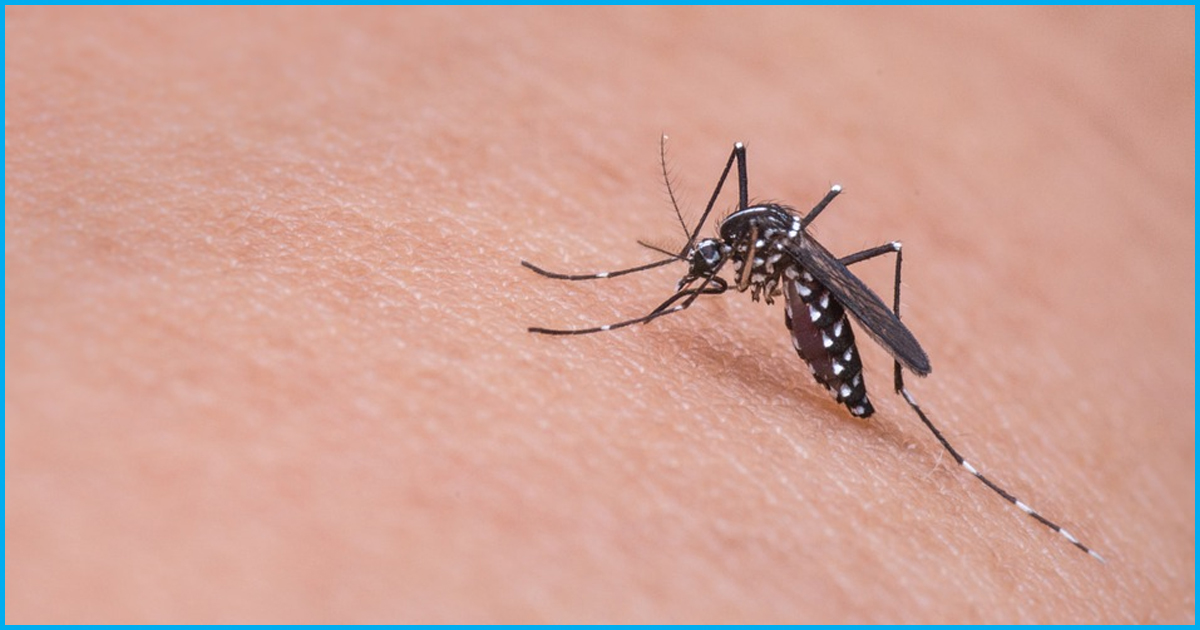India has been rolling under the biggest ever Zika outbreak. Rajasthan health department has confirmed 32 cases of Zika in their state. On 9 October, seven new cases were identified. Even when the health ministry has been saying that the virus is under control, three pregnant women are among the 32 cases that have been reported.
The reported cases are contained within Shashtri Nagar in Jaipur. The government has tried to curb further damage by monitoring the deeper extents of the outbreak by bringing 90 pregnant ladies under surveillance. Venu Gupta, the secretary of the state’s health ministry, said that the government had taken efforts to destroy mosquito breeding grounds by conducting searches in 26,000 households, reported NDTV.
The first trace of Zika Virus was identified in an octogenarian patient at Sawai Man Singh Hospital in Jaipur on 23 September 2018. The central government has joined hands with National Vector Borne Disease Control Programme officials to offer medical support to Rajasthan. A seven-member team has set up five labs for testing blood samples of the suspected patients contracting Zika Virus. Almost 450 people, including 168 pregnant women had been tested for the possibility of the virus.
Bihar’s Siwan district has been put on red alert after a youth who was moving to and fro between Rajasthan and Bihar was tested positive for Zika. “The zika virus has an incubation period of 3-12 days. It appears he contracted the virus in the time that was in Jaipur,” said an official, reported News18.
History of Zika Virus
Zika virus is a flavivirus born from mosquitos. The virus transferred through mosquitos belonging to the Aedes aegypti species. It was first identified in monkeys at Uganda in the year 1947. The virus was detected in human later in the year 1952. Outbreaks of Zika have been reported in America, Africa, Asia and the Pacific regions. From 1960 to 1980, rare cases of human illness were recognised. Asia and Africa.
The first ever record of an outbreak of this virus disease was reported in the year 2007 in the Island of Yap (Federated States of Micronesia). The virus spread in France and the Pacific countries in 2013. In the year 2015, Brazil recorded a major outbreak of illness due to rashes that were eventually identified as Zika infection. Scientist found the virus had been associated with Guillain-Barré syndrome and microcephaly. They would cause rashes and fever. It would make pregnant women vulnerable and induce microcephaly in newborns.
According to the records of July 2018, the World Health Organization (WHO) has evidence for Zika virus infection in 86 countries. In India, this is the third outbreak within a short span of two years. It had earlier affected Tamil Nadu in South India and Gujarat in the year 2017.
How does it spread?
Zika infection in pregnant women is the reason for congenital abnormalities in foetus and microcephaly. It might even lead to difficulties in pregnancies like foetal death, premature birth and stillbirth. It also triggers myelitis, neuropathy and Guillain-Barré syndrome in children and adults.
Researchers are still trying to find the effects of Zika infections to formulate prevention and control strategies.
Zika is transmitted in a similar manner to that of malaria or dengue, that is through bites from the infected species of mosquitos belonging to Aedes family. These mosquitos bite only in the daytime. These families of mosquitos are known to spread other diseases like yellow fever, chikungunya, and dengue. It can be transmitted to the foetus from the mother. Transmission through blood contact, sexual contact, transfusion of blood from the infected person is also possible.
Prevention and treatment
Ensure hygiene in the surrounding by preventing water stagnation, which would be breeding grounds for mosquitos. Avoid unprotected sex and be cautious about the people living in the affected areas. Be careful in blood transfusions and always prefer to screen the blood for infections.
Zika Virus or any disease related to this has no identified treatment for now as it starts with mild symptoms like arthralgia, rashes and fever. Medical attention is needed when these symptoms worsen. Pregnant women must take immediate action to avoid complications.
Virus Attacks in the World
Earlier in 2014, Ebola Virus spread first in West Africa and then hit New Delhi through a man who landed in the city from Liberia. Later in the year 2017, three people were identified to have positive test results for the Zika Virus that attacked South America in 2015 to 2016. Kerala had an alert in June this year after the death of 17 people for the spread of Nipah Virus by fruit-eating bats.











